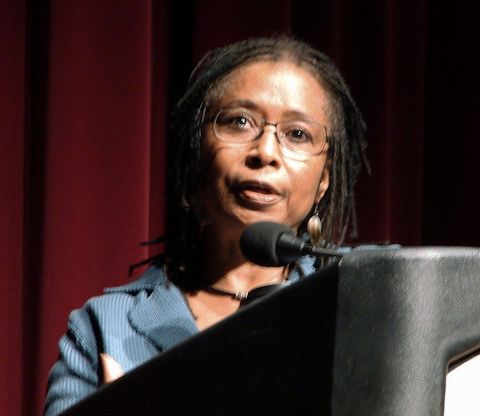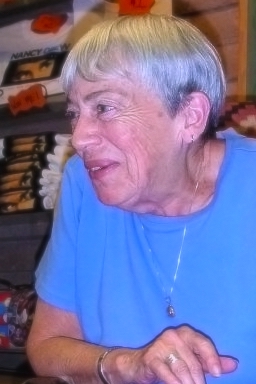

We will just keep going
Until we drop
And this is not a sad thing.
All the leaves that ever lived
Did the same.
— Alice Walker (2020) (images of Alice Walker and Ursula Le Guin above CC-SA 2.0 from wikimedia)
For the nearly 18 years I have been blogging, I have been keeping track of aphorisms (pithy observations containing general truths), principles (fundamental ideas that underlie a system of beliefs), and maxims (rules or suggestions on how to conduct oneself — eg “Trust your instincts.” “Show, don’t tell.”) Over the years I have deleted many that now strike me as overly simplistic (no matter how wittily articulated), or as simply untrue (I am decidedly less idealistic than I was 18 years ago, and some of what I used to espouse now just makes me cringe).
When I last looked through my collection, I lamented how few of them were written/said by women. So here are a few more by some very smart women:
- Given a choice between their worldview and the facts, it’s always interesting how many people toss the facts.
— Rebecca Solnit
- Reality simply consists of different points of view.
- Every aspect of human technology has a dark side, including the bow and arrow.
- Nothing interests people so much as themselves.
— Margaret Atwood
- We are volcanoes. When we women offer our experience as our truth, as human truth, all the maps change. There are new mountains. [this is my absolute favourite]
- There are no right answers to wrong questions.
- My imagination makes me human and makes me a fool; it gives me all the world, and exiles me from it.
- The only questions that really matter are the ones you ask yourself.
— Ursula Le Guin
- The most common way people give up their power is by thinking they don’t have any.
- What the mind doesn’t understand, it worships or fears.
- Propaganda is amazing. People can be led to believe anything.
- Nobody is as powerful as we make them out to be.
- The animals of the world exist for their own reasons. They were not made for humans any more than black people were made for white, or women created for men.
- The most important question in the world is, ‘Why is the child crying?’
— Alice Walker
There are some aphorisms or principles that are so profound and important that I’ve chosen to call them “laws”. To me, a law actually changes or reformulates your worldview. It creates a new lens through which you see everything.
Over the years I’ve come up with two “laws”, things that have “shaken my windows and rattled my walls”. They are:
Pollard’s Law of Human Behaviour: Humans have evolved to do what’s personally urgent for them (the unavoidable imperatives of the moment), then to do what’s easy, and then to do what’s fun. There is never time left for things that are seen as merely important. Social, political and economic change happens only when the old generation dies and a new generation with different entrained beliefs and imperatives fills the power vacuum. We have evolved to be a collaborative and caring species, and we are all doing our best — we cannot do otherwise.
Pollard’s Law of Complexity: Things are the way they are for a reason. To change something, it helps to know that reason. If that reason is complex (and it frequently is), success at truly understanding and changing it is unlikely, and developing workarounds and adapting to it is probably a better strategy. Complex systems evolve to self-sustain and resist reform until they finally collapse. For that reason, the systems of global industrial civilization culture, having precipitated the sixth great extinction of life on Earth, are now collapsing rapidly and inevitably.
Now I think I’m ready to add a third “law” to the list. Here it is as it currently stands (since it’s my law I have the right to rewrite it):
Pollard’s Law of Human Beliefs: We believe what we want to believe, not what is actually true. We want to believe in happy endings, simple answers, the inevitability of progress, self-control, karma, responsibility, destiny, miracles, a proper order of things, the power of love, and infinite human capacity and agency. Most of us want to believe in a higher power that can step in when we falter. We want to believe what those in our circles of trust believe (even if it’s crazy, gaslighting or propaganda). So we tend to seek sources that reinforce those beliefs and ignore those that undermine or unsettle them. Our hopes and expectations are determined by those beliefs. Our worldview is the sum of those beliefs, hopes and expectations, and bears no necessary resemblance to truth or reality. This invented reality is the only way we can make sense of a world that is vastly too complex to ever make sense of.
Yeah, it needs some editing, and I suspect it will evolve, but I think the essence of it is there. You can probably recognize some aphorisms (like Rebecca Solnit’s above, and the third one by Alice Walker above), and some of the work by Lawrence Lessig, Francis Bacon and others, that underpin this “law”.
One of the values of a “law”, to me, is that it not only reveals a profound truth but hints at why it is so. An aphorism teases us to ask “why” it is so for ourselves. That too is valuable, but it is incomplete without the dessert of appreciation for why it is so. Sometimes we have to supply our own dessert.





John Gray…silence of animals…..P.82….When truth is at odds with meaning, it is meaning that wins. Why this should be so is a delicate question. Why is meaning so important? Why do humans need a reason to live? Is it because they could not endure life if they did not believe it contained hidden significance? Or does the demand for meaning come from attaching too much sense to language- from thinking that our lives are books we have not yet learnt to read?..
Philip: The radical non-duality answer would be that when the self emerges (when we’re very young), there’s an enormous sense of loss of the sense of wholeness, of being an inseparable part of everything. So then searching begins — searching to recover that sense, searching for meaning and purpose, searching for ways to deal with the anguish and suffering that the feeling of being separate and responsible and vulnerable to “everything outside” brings about. Those who have, somehow, seen their sense of self fall away report that it’s obvious that life has no meaning or purpose, so the searching ends. When everything just obviously is as it is, there is no more need for beliefs. No more need for an invented reality.
The section of the book that the paragraph comes from- ‘humanism and flying saucers’ is about belief and reality and relates well to your third law above. I recall you have read the book (and probably have it) – guess I was humbly offering the comment to help you revise the third law of human beliefs. I didn’t really have anything else particular in mind. Radical non duality is comparable to the concept of the ‘silence of animals’ in many ways. I think we have agreed on as much in the past. The contemplation Gray describes is about “nullifying the self”- all it offers is mere being. His searching is fascinating however- a searching that is still evident in your various musings but less so in your explanations of radical non duality.
Thanks Philip: I’ve dug the book out and am rereading it.
Are you aware of Varki’s theory on reality denial?
https://www.goodreads.com/book/show/16131197-denial#
This theory would go a long way in explaining parts of pollard’s third law.
Thanks Perran. I’m familiar with Ajit’s “intrinsically maladaptive traits” theory and have referred to it in some of my writing on climate change denial. I’ll be thinking about it as I evolve the “Law”.
Well, dear Dave, I have a few, myself, which I have coined and maintained over at least a tad bit more than a decade now:
Love Lasts
Complex things Collapse
Simple things Sustain